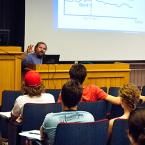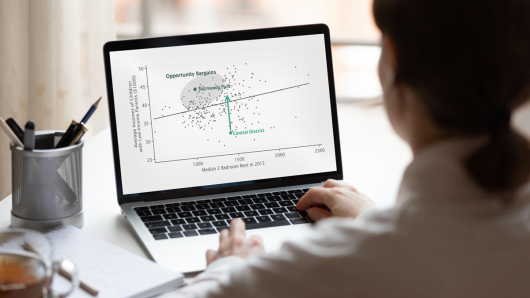Course description
This course provides an analytic and applied overview of both microeconomics and macroeconomics. In the microeconomic portion of the course, we examine exactly how prices are determined in competitive markets and what can distort that determination. Market structure is analyzed, including the fundamentals of firm pricing and production decisions.ˇUsing examples from various industries, we analyze what happens when market conditions change. Furthermore, we examine how these changes affect overall social welfare. Issues concerning trade are addressed, for example, when should countries, or even individuals, trade? Who gains or loses from trade? Turning to macroeconomics, we investigate the key economic statistics that you read about in the business press and other media, such as gross domestic product (GDP), the consumer price index (CPI), and the unemployment rate.ˇFor so many around the world, economic development is literally a matter of life and death. While economic growth is primarily a long-run phenomenon, short-run fluctuations in the economy—cycles of expansion and recession—are often the focus of short-run planning decisions by consumers, firms, and government. We examine in detail what causes these fluctuations and how government policies—monetary and fiscal policy—can dampen these cycles.ˇAn understanding of the Federal Reserve and monetary policy must be predicated on an understanding of the banking and financial system. Therefore, we delve into that in the course of our study of actions by the monetary authority.ˇRecent events have also thrust fiscal policy to the fore.ˇWe talk in detail about how fiscal policy works and its implications for the economy in both the short and long term. Economics is not primarily a set of answers, but rather a method of reasoning. By the end of the course, students are able to use the framework they have learned to form their own judgments about the major economic problems faced by the United States and other countries. Indeed, after completing the course, students often find that they are better able to read and interpret the business press and other media and are better equipped to evaluate the economic policies promulgated by governments and other institutions.ˇMore importantly, however, the analytical skills students acquire in the course are instrumental in their continued success in the pursuit of a graduate degree or certificate. For complete and current details about this Harvard Extension course, see the description in the DCE Course Search.





